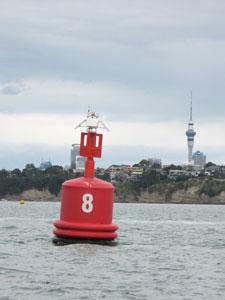|
2009 marks the 40th Anniversary of ICO Polymer’s There’ve been many positive developments that have helped mould this company into a true world-class powder supplier. The launch of the R&D department in 1995 was a major milestone. Bloys Rijkmans, longstanding Group Technical Manager, was instrumental in ensuring the development of satellite units in Resins from around the world are trialled and compared, and only those meeting the high criteria are developed into commercial grades. “Our primary point of difference lies in our people and in the depth of experience we have on board,” says group marketing manager Sally Beets. “Both our sales and technical departments are very good at what they do and extremely responsive to customer requests.” Beets says remote warehousing and the ability to carry a broad range of stock items means they can generally react very fast to specific requests. Having its own R&D department allows the company to have a far more effective trouble-shooting capability, as well as the ability to formulate grades for new and challenging rotational moulding projects. Another major milestone was becoming part of Houston-based ICO Inc in 1998 – providing access to different technologies and materials from sister companies around the world. Today, ICO Polymers supplies custom powders for a wide range of local plastics manufacturers – end products range from desktop paper trays to water tanks, industrial bins, pallets, agricultural equipment, even kayaks. Over the years the company has progressed from toll grinding for resin suppliers to buying the resins and developing their own colours and grades. Its own COTENE brand is synonymous with quality. The introduction of compounded colours in the ‘80s had a huge influence on the rotational moulding industry. COTENE standard colours became available ‘off the shelf’ – coping with the growing numbers of small moulders. Today ICO Polymers has tank colours that match the Coloursteel roofing range, as well as Stone Effect colours complete with speckled effect, Antique Effect colours with swirling patterns and Vision Glow colours which glow in the dark. “Examples of in-house formulations which have been very successful include a tough high density grade for white water kayaks, and a resin specifically designed to meet the stringent requirements of the UN drum application for transport and storage of chemicals,” says Rijkmans. “Other specialist grades have included a Flame Retardant series, semi-conductive material and foaming PE grades.” Beets recalls one manufacturer of portable toilets, R.A.L. Plastics of Christchurch, who wanted to upgrade the look of the units. Stone Effect material was trialled as a second layer inside the unit to provide a marbled effect. It looked good but reduced the opacity of the total wall of the unit. “Therefore a special speckled colour was produced for the customer, to regain the opacity and secure the customer’s clients’ privacy! |
“Then the same manufacturer wanted to produce some camouflaged toilets for the New Zealand Army. We suggested the use of Mold In Graphic Systems spray-in colours which ICO supply. Apparently the camouflage effect was so good that one of these toilets has never been found!” Because the resins used in rotomoulding are primarily polyethylenes, there is potential for increased recycling, and ICO Polymers has seen a growth in the amount of scrap and trimmings coming back to be recycled. “The recycle issue is very important and our main aim is to ensure that recycle material is only used in non critical applications. Recycle material will not exhibit consistent properties as the degree of heat history/exposure the material has undergone will vary and the degradation which the polymer has suffered will not be consistent. This is important for the reputation of rotationally moulded products,” says Beets. Toll grinding of resins or other materials is another potential growth area. The ground material may be for ‘Masterbatches’ for the injection moulding and extrusion industries, or to give texture to paints, floor, wall and roof coatings or for use in adhesives and specialist compounds. Grinding locally rather than importing the ground material can be a more cost effective solution for some of these components. “In some cases standard ‘off the shelf’ imported powders may be finer than necessary and ICO can review this situation and find a larger particle size material which will be a good economic solution for the customer,” says Beets. Email: s.beets@cotene.co.nz
|






